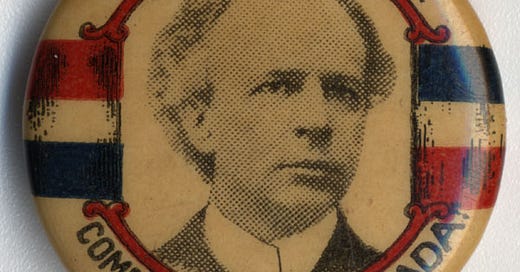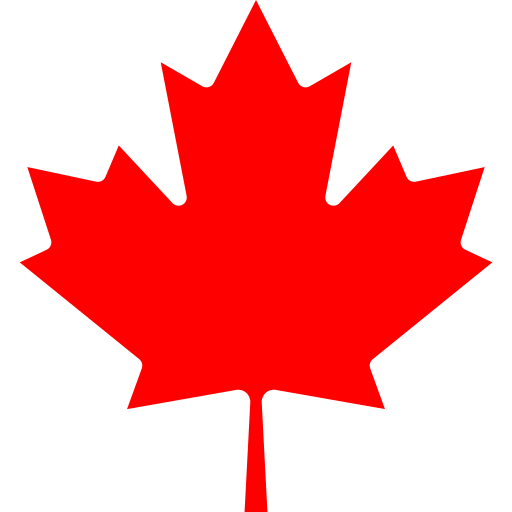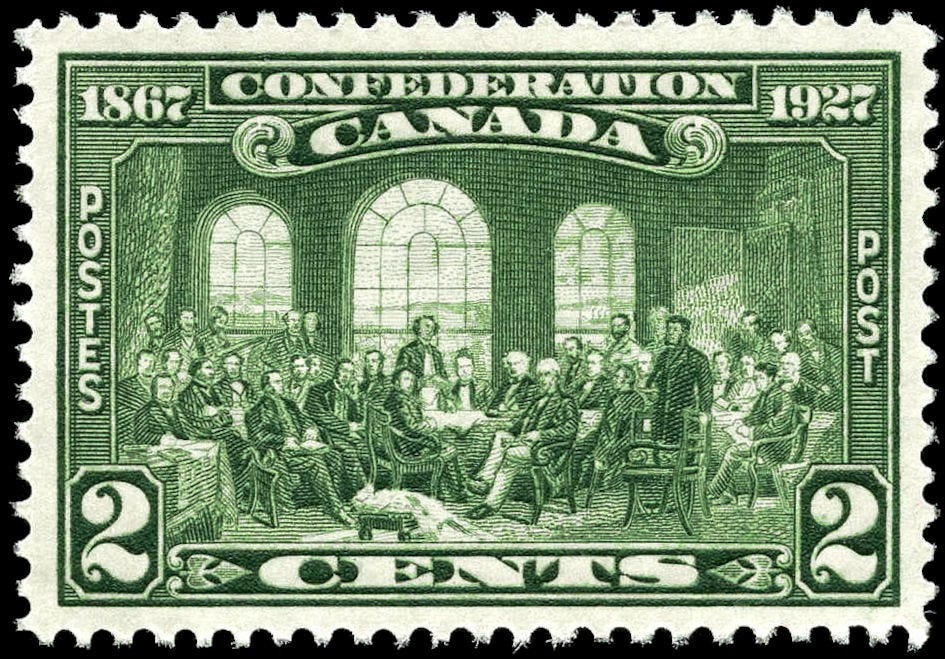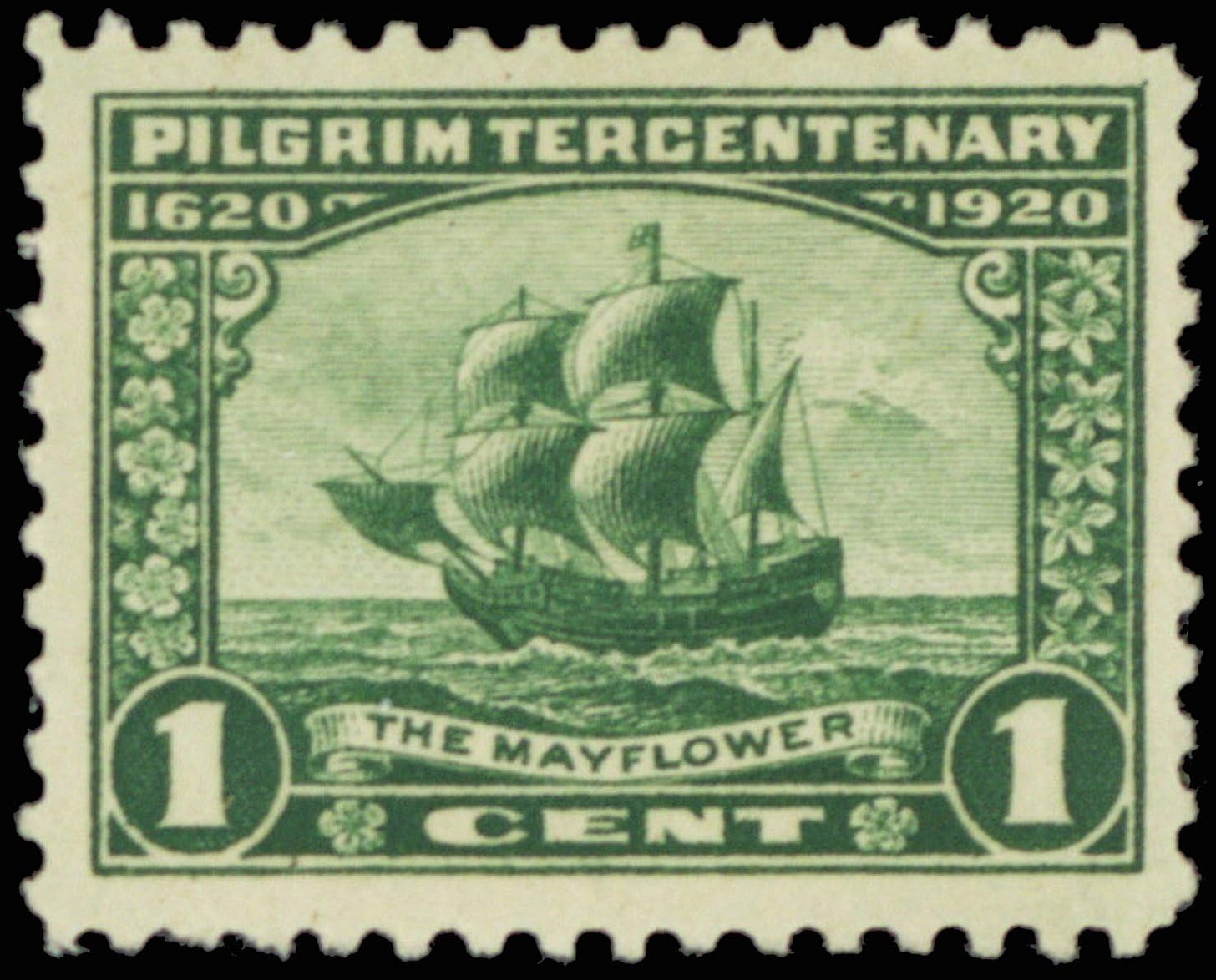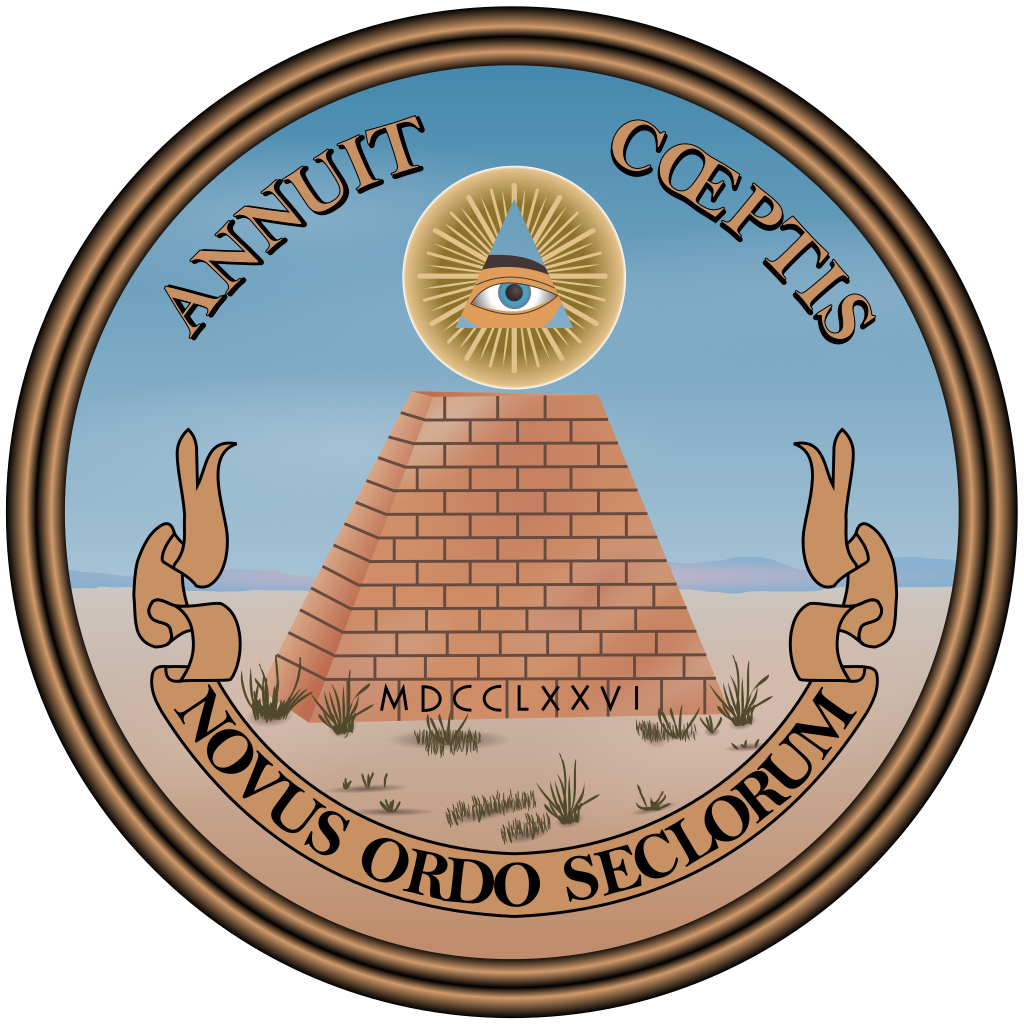My Advice for Canada's Liberals Part 2: Stand Up for Canada
Original Kitchener, Canada - November 5, 2024
This is the second installment of a projected series of posts intended as an encouraging word for Canada’s Liberals.
I’ve suggested that as this country’s last remaining “legacy party,” the Liberals have a near monopoly of the political centre, as traditionally conceived. A progressive, forward-looking bent has been the Liberal way since the very beginning, but always in line with our distinctly Canadian “conservatory” approach to making progress, step by step.
The opportunity at hand is to stand up for Canada, but not in the standard, jingoistic “hurray for our side” manner. The Liberals are in a unique position to serve and represent those of us who are able to hold the conviction, or at least sustain the hope, that far from being “broken,” Canada is an idea whose time has come.
My advice to Canada’s Liberals, then, is to stay the course, including going into the next election with the current leader in place. Especially now, with the New Democrats having terminated the supply-and-confidence agreement that would have ensured that the current government would keep serving and representing us for the full four-year term, there is simply not enough time left for going through a leadership selection process.

The current leader of the opposition, like those truckers who occupied the nation’s capital for weeks on end in 2022, would have us blame Justin Trudeau for every trouble that has befallen us lately -- masks, vaccines, quarantines, congested supply lines, disruption, inflation, stagnation. The fact is, it's been a rough nine years since the Liberals returned to power. In addition to the pandemic and all that followed, we've seen
the rise of Donald Trump to the role of President and Commander-in-Chief in the republic down below;
the Brexit fiasco in the UK;
tensions with China, and then India, which together make up more than a third of the human race;
the murder of George Floyd at the hands of a law enforcement officer in nearby Minneapolis;
the insurrection at the Capitol;
the siege of Ottawa;
news about the children's graves in Kamloops;
all those wildfires, year after year;
the invasion of Ukraine;
terror and counter-terror in Gaza and now Lebanon, with no end in sight to all the death, suffering and destruction in Yemen and Sudan.

Almost every item on this list of woes came unexpectedly, in ways that were beyond the control of our elected representatives, federal, provincial or municipal. There is no simple explanation for any of these developments, and no ready solution.
My impression is that as Prime Minister of Canada, Justin Trudeau has almost always responded to these kinds of challenges with dignity, forbearance and a measure of grace.
Trudeau saved the party from oblivion, and liberated the country from the doldrums of the Harper decade. But after their victory, Liberals seemed to shift right back into the business of governing as though their near total defeat in 2011 had never happened. Even if there weren't an election coming soon, I don’t think the party is ready for a leadership race.
Other than the standard stream of uninspired fundraising pitches, there was no discernable effort to follow through with some much needed attention to repairing, maintaining and building the party at the constituency level. There has been no serious attention to the task of adapting what Liberal Party stands for to fit 21st-century realities, especially challenges and opportunities associated with what could be called ”planetary home economics:” how the 8 billion of us get along with one another, and how we relate to all life forms with which we share our Earthly home.
They should start doing that kind of work now, with a view towards the longer term -- the next 20-25 years, say, as prelude to the rest of the century and beyond -- and integrate it with whatever they may be planning for the 2025 election.
For all intents and purposes, that campaign is now underway. We should all be thinking and speaking about it in the present tense. But even if Canadians are allowed a full year to decide who to vote for this time around, it wouldn’t be enough time to do the kind of repair, maintenance and upgrading work that will be required to keep the Good Ship LPC serviceable for the decades ahead.
My advice is to make this a rest-of-the-decade work plan, backed by a firm resolve to carry on regardless of what happens in the next election. It would be irresponsible not to take into account the possibility that they may not be able to win this next confrontation with the forces of illiberal disruption, just as there there appears to be a close to even chance those strains will triumph today down in the United States, where they originated.
While the Liberals are busy over the months ahead trying to persuade us to give them a chance to finish what they started in 2015, there could also be an invitation to loyal, progressive, democratic and genuinely conservative Canadians to participate in a process of repairing, refitting and recharging this entity that has been part of what how this country functions since before Confederation. This should be presented as an opportunity to stand up for Canada -- the land, the people and the ever-evolving governmental order -- rather than for a partisan cause.
As a government, the Liberals can promise to carry on with what they’ve been promoting as “investing in Canadians.” It would be wise, however, for them to also make room for us, as Canadians, to make a special effort to invest in our country with our time, thought, energy and good will over the next few years.
I’m not talking about reinventing or “re-forming” Canada and its institutions, among which the Liberal Party is one of the most fundamental. That’s the revolutionary republican way, the way of disruption, destruction and imposition.
In future installments in this series, I’m going to propose a way to tell the story of the “True North” in which there are no “fathers” who created Canada. There was never a point when Canada was “born,” or when certain founding elements struck a “deal” that set everything into motion. Confederation itself was just a step along the way. Canada is, and always has been, in a state of becoming.
There was a time when never having had a “founding moment” was viewed as a weakness. What Canadians are about to discover is that this is actually a strength: Along with the land itself, and the extraordinary diversity of the peoples and nations that live within our shores and borders, it our great good fortune as Canadians to be part of one of the few sovereign states in the western hemisphere that is not a revolutionary republic.
Before I go any farther, I should take a moment to explain why I’m referring to the Liberal Party of Canada in the third person: as “them,” rather than “us.” While I'd like to see a “re-membering” of the party, I have not, as yet, stood up and committed myself.
The fact is, when the next federal election happens, it is close to certain that I will vote the same way I did in the (unnecessary, and largely inconsequential) election of 2021: for Mike Morrice, the energetic representative for Kitchener Centre on Parliament Hill, who serves his constituents under the Green Party banner.
Mike earned our support and our loyalty here in Kitchener by doing some of the things I’m advising the Liberals to do in these musings, especially connecting with citizens where we live, and listening as well as promoting a set platform of intentions and convictions. He’s never stopped knocking on doors, always with the same energy and enthusiasm that won us over during the election campaign. He does it in a way that shows that his purpose is to gather input from the citizens he represents in the House of Commons, not to drum up support for himself or any particular cause.
I take some pride in the fact that my home town, Kitchener Centre (or “Original Kitchener” as I like to imagine it) has distinguished itself among Canadian urban centres by choosing a Green Party candidate to represent us both on Parliament Hill and in Queen’s Park.
At one point, I went so far as to become a member of the Green Party of Canada, but a reluctant one: The word “party” signifies partition, and I don’t think separation -- departing from the greater whole -- is the best way to serve the Green movement’s foundational premise that “all life on the planet is interconnected and that humans have a responsibility to protect and preserve the natural world.”
Partition is the antithesis of interconnectedness. “Humans” means all of us, not only from sea to sea to sea, but also overseas; not only to the border with the republic to the south, but also beyond the border to the rest of the hemisphere. It is obvious that this expression of principles is meant to bring people together, not not to divide us. A liberal progressive democrat, with or without a conservatory streak like mine, should understand the limitations of a separatist kind of partisanship, especially for interests and concerns that are universal. “All life on the planet is interconnected” is a statement of fact, not partisan conviction.
Interconnectedness, however, is not amalgamation - a melting away of distinctions into a single mass. A liberal progressive democrat also recognizes that diversity is a strength. Diversity, in fact, is a prerequisite for harmony. A unified, undifferentiated whole can only bring forth a dull, brittle monotony. Solidarity without diversity is a weakness.
According to that storyline that I’m going to follow in these musings, this separatist, “come outer” impulse has been part of what eventually became the U.S. American story since the Puritans abandoned England for Holland, and then crossed the ocean to begin a new, truly Christian, radically Protestant “City on a Hill.” When the rebellious settlers announced their decision to “come out” of an established political order with a Declaration of Independence in 1776, and again when the secessionist cotton states decided to break away in 1861, they were following the same impulse.
These were all collective separatist movements, involving dissenting congregations, rebellious colonies or federations of colonies and, later, groups of disaffected states. “States rights” movements are a modified separatism. But certain libertarian strains, especially the Kochist variation, are an extreme version of the separatist impulse in which the individual and whatever holdings they’ve been able to inherit or accumulate become a kind of sovereign state.
The U.S. federal order was designed to counterbalance separatist and egoist strains. Even at the beginning, before they formed a “more perfect union” under the Constitution, the agreement to form the United States was understood to be total and irrevocable: The full title of the first attempt at establishing some kind of order was “Articles of Confederation and Perpetual Union.” The intent is explicit in the motto: E pluribus unum — Out of many, one.
E pluribus unum doesn’t suit the Canadian story. Instead of many states, cultures and interests being permanently fused into a single nation, Canada has always been plural — many nations, peoples, habitations and geographies — and fluid: The mottos on the reverse side of the Great Seal of the United States don’t fit our story either: Annuit cœptis ("He has favored our undertakings") and Novus ordo seclorum ("A new order of the ages"). Our story is continuous, written by what used to be thought of as “Providence,” not as an “undertaking” by a committee of delegates from various places, near and far.
We are also many, and various — increasingly so. Part of the reason why the civic landscape has become so perplexing is that broad regional political cultures have become more distinct. Think about the variations of what ”Liberal” signifies nowadays in Pacific Canada, the Prairies, Northern Ontario, Laurentian Ontario, Quebec, the Maritimes, and Newfoundland, or among First Nations, Metis and Inuit.
But that doesn’t mean we’re coming apart at the seams. Organisms grow through cell division, but they remain integrated and intact as changes unfold.
My advice for Canada’s Liberals is to aim towards becoming as broad a tent as Canada is large, plural and various. There could even be a place for a blue and green leaning neo-loyalist like me.
There are, however, limits to who would be welcome under such a broad tent. Maybe the clearest way to draw the distinction is to say that this broadest of tents is meant to serve as an association of those who believe that governments of all kinds can and should serve the common good.
The tent can cover everyone who believes in, is loyal to, or at least has hope for Canada — Canada the land, the people, and the nation state — but as a work in progress, not as an established standard. Standing up for Canada means commitment and service to what this particular nation state is becoming, not to what it has been at any point along the way.
There is obviously no room in the tent for those who foment, and exploit, resentment, fear and hate.
Anyone who has been convinced that “government is a necessary evil” might not feel at home in a liberal, democratic and progressive environment, but such a pessimistic view of human nature is not antithetical to wise political decision making.
The idea that “the best government is that which governs least” is similarly innocuous. With a slightly different spin, it comes close to Wilfrid Laurier’s argument that the “sunny way” is the best approach: With civility, generosity and patience we can accomplish what can never be solved through anger and coercion.
Those who go so far as to hold that government itself is the problem clearly don't belong inside the kind of tent I’m imagining for Canada’s Liberals. This is tantamount to saying Canada, as a nation state, is an obstacle to be overcome. It is, therefore, essentially a disloyal stance – the antithesis of standing up for Canada.
But it is not the opposite pole in a spectrum of attitudes towards Canada as a nation, a starboard to complement a port in relation to steering the ship of state. What we’re up against here is a negation. This style of disloyal opposition can only be understood by what is missing -- a lack of faith, a loss of hope, an incapacity for compassion. It is an emptiness that can only be filled; a darkness whose only useful purpose is as a place for light to fill.

